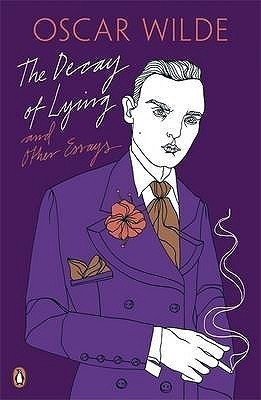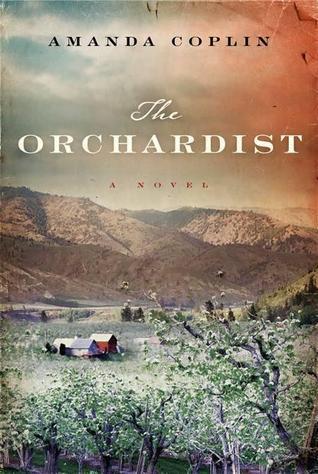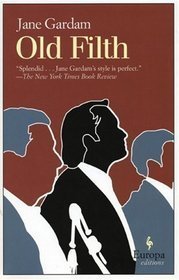Tom Gething's Blog, page 5
February 5, 2013
To invert is to subvert
 Oscar Wilde was the master of the epigram, the biting riposte. Though best known for his plays and novels, Wilde’s essays demonstrate some of his sharpest zingers.
Oscar Wilde was the master of the epigram, the biting riposte. Though best known for his plays and novels, Wilde’s essays demonstrate some of his sharpest zingers.
“The Decay of Lying” is a perfect example. In this short, Platonic-style dialogue between two upper-class aesthetes of the late nineteenth-century English garden variety (pictureDaniel Day Lewis in “A Room with a View”), Wilde pitches his own critical theory of Aestheticism, or “Art for Art’s Sake.” The brilliance comes from his ade...
January 25, 2013
“Fair fa’ your honest, sonsie face…”

(Photo credit: Wikipedia)
Today, the world over, people are piping in the haggis in honor of Scottish poet Robert Burns, born on this day in 1759. How many poets are so well celebrated? Perhaps it’s because Burns was a poet of the people: vernacular, musical and oftenbawdy. He liked his whisky, he loved his women and he cherished his freedom. Here’s to you Rabbie!
To a Haggis
Fair fa’ your honest, sonsie face,
Great Chieftan o’ the Puddin-race!
Aboon them a’ ye tak your place,
Painch, t...
January 10, 2013
Caution! Do not enter! Readers will be shot!
I love this picture which a friend shared on Facebook. Though it could be mistaken for my office, it’s actually a picture taken during the London blitz. Two things about it strike me. First, what could the boy be reading? He is so intent and, strangely, happy. Second, how odd to have access to a bombed building like that. Can you imagine the yellow warning tape that would encircle it today?


January 5, 2013
Proustian promises

Marcel Proust in 1900 (Photo credit: Wikipedia)
This year I’ve done what I hope is not a foolish thing: I have joined a Goodreads group called “The Year of Reading Proust.” There are some 700 of us led by a well-organized and devoted Proustian who online goes by the wonderful name Proustitute. The group formed late last year, and once the best English and French editions were identified and a year-long schedule devised, we began with ancillary readings to enhance the understanding of In Search...
December 11, 2012
Which of the best books did you read this year?

One of the scabrous satirical prints directed against Pope after his Dunciad of 1727. (Photo credit: Wikipedia)
Surveying this year’s “best books” lists to see which ones I’d read (none, it turns out), I was reminded of a long-ago conversation.
Teaching English in Mexico, one of my students was a businessman whose concentration on engineering meant that his education in the liberal arts was largely self-taught. Being an intellectually curious man bent on self-improvement, he told me he only rea...
November 23, 2012
Reading at Seattle Public Library
I will be reading from Under a False Flag at the Seattle Public Library (Central Library, Level 4, Room 2) on Saturday, December 1 from 2:00 to 4:00 p.m. Here’s the flier: Reading from Under a False Flag.
In anticipation, I’m also attaching a Q&A about the novel that was originally posted in a revised format on goodreads.com: Q&A with Author Tom Gething
I would be delighted to meet my blogging friends in person if any of you can make it. Thanks!


November 13, 2012
The importance of historicity in fiction
 The Orchardist by Amanda Coplin marks the debut of a talented new American writer. A lovely review at Chalk the Sun inspired me to read the novel, and I encourage you to read it as well. Here, I want to raise a question that came from reading Coplin’s book on the heels of Jane Gardam’s Crusoe’s Daughter, a question that, frankly, I’m struggling to frame.
The Orchardist by Amanda Coplin marks the debut of a talented new American writer. A lovely review at Chalk the Sun inspired me to read the novel, and I encourage you to read it as well. Here, I want to raise a question that came from reading Coplin’s book on the heels of Jane Gardam’s Crusoe’s Daughter, a question that, frankly, I’m struggling to frame.
Midway through The Orchardist I paused and asked myself, why am I reading this? Is it believable? (I had a similar experience reading Gardam’...
October 24, 2012
Overwhelmed, thank you!
I was overwhelmed by the response to my interview with a semicolon. Being “freshly pressed” brought the controversy to many more readers than I ever would have imagined. It’s hard to believe that a piece about punctuation could bring out such passion, but there you have it–bloggers are passionate about communication and therefore passionate about punctuation.
It’s reassuring to note that everyone who commented was an advocate of semicolons; if that’s any gauge, the likelihood of their fading i...
October 17, 2012
Interview with a semicolon
Gething: Thank you for agreeing to this interview.
Semicolon: The pleasure’s all mine; thank you for having me.
Gething: My interest is in the controversy you have stirred in the literary world.
Semicolon: I’ve done no such thing; those who don’t use me seem to be causing all the fuss.
Gething: That’s my point. Many modern writers, in particular Cormac McCarthy in his interview with Oprah, have called for your extinction. What did you do to create such a virulent reaction?
Semicolon: Ask Mr. McCar...
October 4, 2012
Discovering Jane Gardam’s emotional islands
 Britain’s multi-prize-winning author Jane Gardam was virtually unknown in America until the publication of her delightful novel Old Filth in 2004. That book brought her the long-overdue attention she deserves.
Britain’s multi-prize-winning author Jane Gardam was virtually unknown in America until the publication of her delightful novel Old Filth in 2004. That book brought her the long-overdue attention she deserves.
Gardam’s writing is smart, bright and impressionistic: she colors places and characters deftly but never lingers too long on description or dialogue. Her novels are remarkable for their insinuation of the emotional undercurrents of ordinary lives.
Old Filth brought to life the unusual and...




